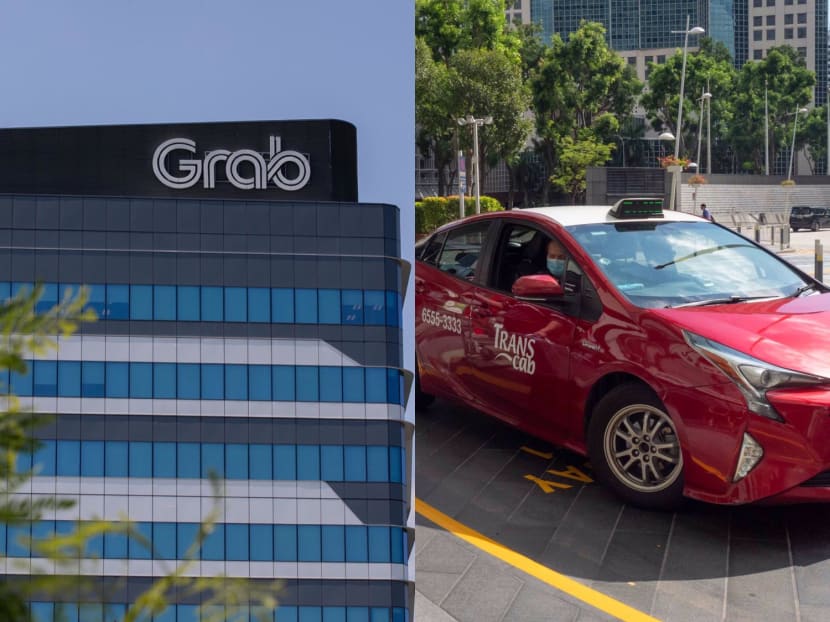Analysis: Grab's acquisition of Trans-cab should mean shorter wait for rides; fares unlikely to increase
SINGAPORE — Commuters should find it easier to get a ride and expect shorter waiting times if Grab succeeds with its takeover of Trans-cab, said analysts who also believe that an acquisition will not immediately result in higher fares.

- Commuters should find it easier to get a ride and expect shorter waiting times if Grab succeeds with its takeover of Trans-cab, said analysts
- They also believe that an acquisition will not immediately result in fares increasing
- Experts said there could be further consolidation in the ride-hailing and taxi industry
- Due to the high demand for taxi and private-hire services, among other reasons, big companies are willing to pay high prices to expand their reach
- However, it is still too early to tell whether the industry would end up having just one or two big players
SINGAPORE — Commuters should find it easier to get a ride and expect shorter waiting times if Grab succeeds with its takeover of Trans-cab, said analysts who also believe that an acquisition will not immediately result in higher fares.
Grab and Trans-cab announced the acquisition plan on Thursday (July 20) and the deal still has to be approved by the authorities.
If it gets the green light, Grab will have a bigger fleet after acquiring more than 2,500 taxis and private-hire cars from Trans-cab, the third largest taxi operator after Strides Premier and market leader ComfortDelgro.
With a bigger fleet, experts said that commuters should expect a better quality of service from Grab — faster response times to ride bookings, shorter wait times and higher chances of booking a trip, among others.
Grab has 50.2 per cent share of the ride-hailing market in Singapore as of May 2022, according to data platform Measurable AI.
In a memo to drivers seen by TODAY, Trans-cab said that there will be no changes to drivers’ rental rates or any of the “current arrangements”.
Drivers can continue to take street-hail jobs, while having the option of choosing to be on any other ride-hailing apps.
News of Grab's acquisition plans follows the merger of Strides and Premier in May, but analysts TODAY spoke to pointed out that the ride-hailing and taxi market still largely remains an oligopoly.
As there is still competition within the sector among companies such as ComfortDelgro, Prime, Gojek and Tada, the analysts do not expect Grab's acquisition to result in higher fares.
“Prices will be moderated by competitors. Grab needs to offer competitive pricing; in this market, people are price sensitive,” said Professor Lawrence Loh from the National University of Singapore (NUS) Business School.
Drivers are on multiple ride-hailing platforms, so unless companies enforce exclusivity on drivers to operate on a single platform, for example, drivers and consumers remain free to select which platform they intend to use, said Associate Professor Walter Theseira from the Singapore University of Social Sciences.
Associate Professor Raymond Ong from NUS said: “Unless (Grab) regulates drivers’ app usage or there is a structural change in taxi operations, they cannot hike up prices if their competitors are doing well.”
FURTHER CONSOLIDATION AHEAD?
There is a general consensus among experts that there could be further consolidation in the ride-hailing and taxi industry.
Due to the high demand for taxi and private-hire services and limited fleet supply, big companies are willing to pay high prices to expand their reach.
"Consolidation has been happening in the taxi industry and may also happen in the private-hire rental car industry because the guy who has a larger fleet can maintain them cheaper, and therefore either make more money or charge lower rents," Assoc Prof Theseira said.
However, experts agree that it is still too early to tell whether the industry would end up having just one or two big players.
But they believe that there would be convergence and integration between the two interconnected industries.
“It is compelling for (ride-hailing companies) to move centrally into the taxi space because it is already very ride-hailing oriented, the similarities make the move natural,” Prof Loh said.
“Because of their similarities, they will pivot into the taxi industry.”
In the near future, experts believe that Prime Taxi, having the smallest fleet of 510 vehicles as of May 2023, is the most likely to be subsumed by other taxi or ride-hailing companies.
“I’m not surprised if another player will consider Prime because it’s quite small and easier to acquire,” Prof Loh said.
Assoc Prof Ong added: “Prime will be in a very volatile position now, but whichever company that buys into Prime will not match Grab’s fleet size.”
National daily The Straits Times reported that Grab is understood to have made an offer to buy over Prime Taxi as of November 2022, but the deal has not been sealed.









